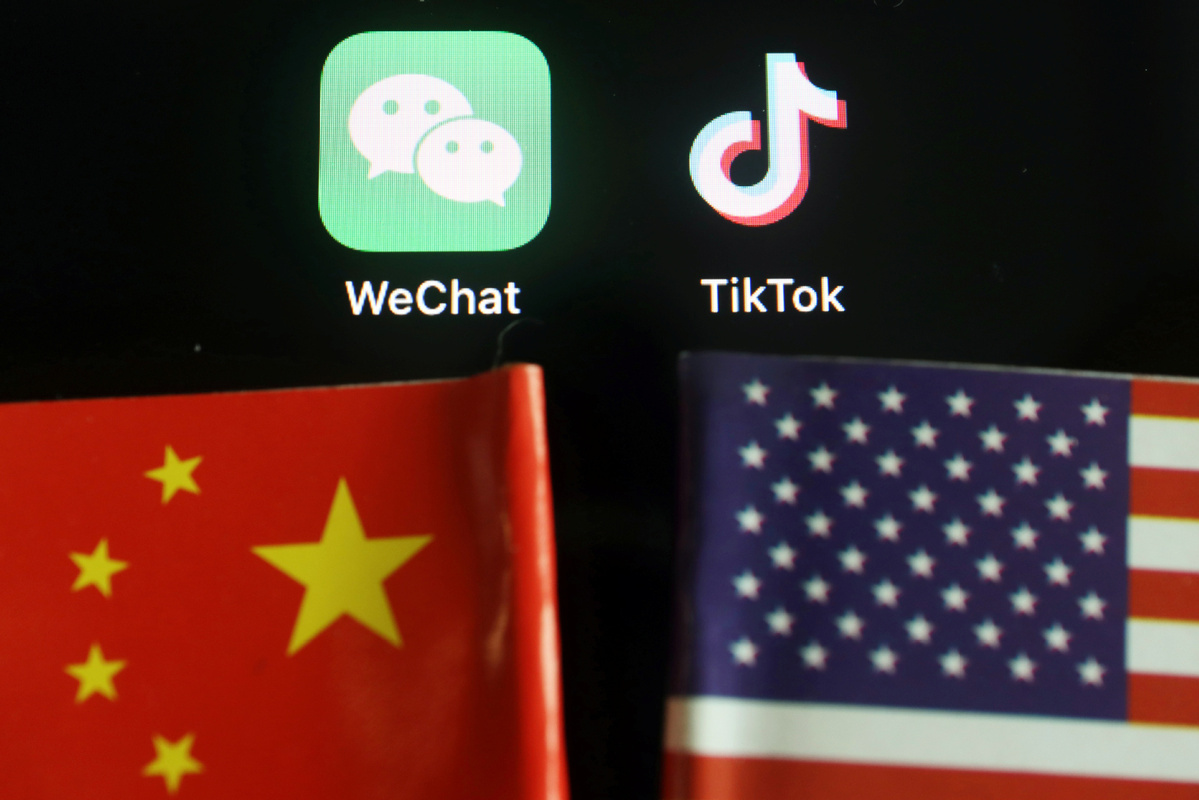
The messenger app WeChat and short-video app TikTok are seen near China and US flags in this illustration picture taken Aug 7, 2020. [Photo/Agencies]
The US administration has proposed that all Chinese companies listed on US stock exchanges abide by the auditing requirements of the United States, failing which they will be de-listed. The proposal, communicated on Thursday, also requires those companies' Chinese auditors to share their audit papers with the US authorities.
This is another example of the US administration targeting Chinese companies. On May 20, the Senate passed the "Holding Foreign Companies Accountable Act", which is believed to be aimed at forcing Chinese enterprises to share their audit papers with the US watchdogs.
The US administration's vicious attacks against anything Chinese has forced quite a few Chinese companies to exit the US stock market over the past few years and list on the stock exchanges of Hong Kong and the Chinese mainland. However, as of July 28, 245 Chinese enterprises were still listed on the US stock exchanges.
Compared with 20 years ago, when many Chinese internet technology companies applied to be listed on the US stock exchanges, because the mainland stock market was relatively less developed and had limited reach at the time, the mainland stock market today is well developed, and can help the Chinese companies to grow further by providing more IPO opportunities for start-ups and raising additional capital for established companies.
China has enough capital and is making efforts to channel it to Chinese companies, so as to boost research and innovation. In fact, the number of unicorn companies in China by June was comparable to that in the US.
If the US believes it can throttle Chinese enterprises by shutting its door on them, it is wrong, because they will develop and expand even without being listed on the US stock exchanges only that US investors won't get a share of their profits.
Besides, the return of the Chinese enterprises will further prompt the government to deepen financial reforms and improve securities market governance to internationalize the mainland's capital market, as well as give a shot in the arm to the Hong Kong financial market that needs well-performing companies to boost its growth.


